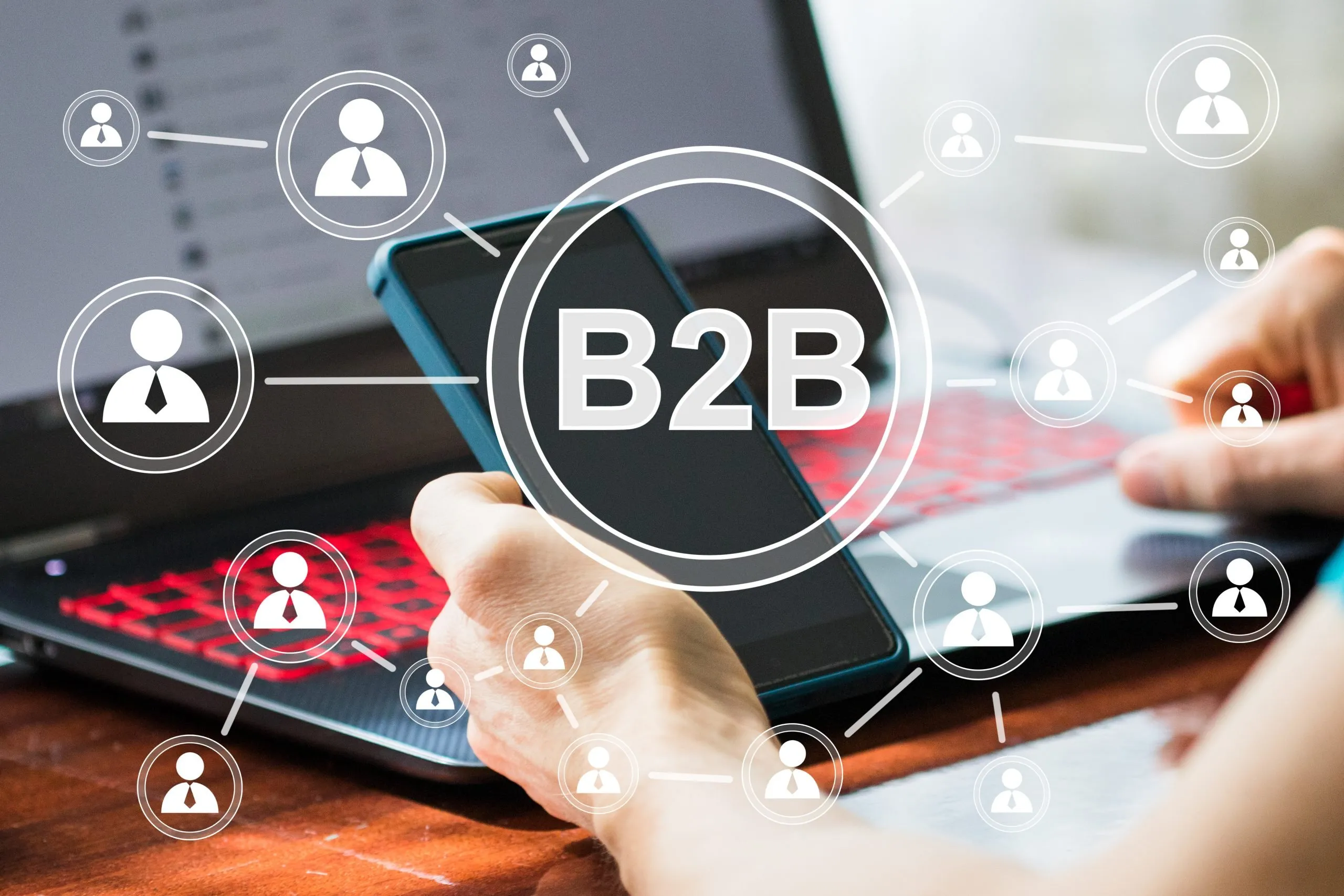Hello!
The business-to-business eCommerce industry is growing at break-neck speeds. It is estimated that 80% of B2B procurement interactions will take place online in the next five years, making the need for B2B wholesale marketplaces undeniable.
 A B2B wholesale marketplace is an eCommerce platform that helps showcase wholesale sellers to a vast pool of wholesale buyers to boost sales significantly. The best B2B wholesale marketplace allows sellers to handle multiple aspects under one platform, such as marketing, selling, invoicing, and fulfilling orders, among many others.
A B2B wholesale marketplace is an eCommerce platform that helps showcase wholesale sellers to a vast pool of wholesale buyers to boost sales significantly. The best B2B wholesale marketplace allows sellers to handle multiple aspects under one platform, such as marketing, selling, invoicing, and fulfilling orders, among many others.
Before you start your search for B2B wholesale marketplace solutions, you need to clearly understand the type of a marketplace that you want to build. Here are three most common models
Supplier-oriented marketplace (e-distribution)
The marketplace features more buyers and fewer suppliers and is run by the supplier(s) as a single business or group. The platform is ideal for companies looking for items, not vendors. It is also suitable for suppliers working to build goodwill and a loyal customer base.
Intermediary-oriented marketplace (e-exchange)
The platform is run by a third party, connecting sellers and buyers. It features an extensive pool of buyers and sellers and charges a transaction or subscription fee. This model is best suited for small and medium businesses looking to expand their reach.
Buyer-oriented marketplace (e-procurement)
 The model features more sellers and few buyers.
The model features more sellers and few buyers.
Buyers own the sites, and sellers list their products and prices to compete.
The platform is ideal for large-scale buyers looking to centralize and streamline purchasing.
Six features you should look for in a B2B Wholesale Marketplace Solution
B2B transactions are complex. The process involves many stakeholders and longer cycles. This is further complicated by the unique compliance requirements in the different B2B industries.
B2B wholesale marketplace solutions aren’t created equal, and each marketplace has an area where it outshines the other depending on your business needs. This is why it’s imperative to do your due diligence before making the final decision. It would help if you chose a solution that best matches your operations and requirements.
Below are a few key factors you need to consider before choosing a B2B wholesale marketplace in 2021.
Ease of navigation
 While focusing on functionality, some marketplaces lose sight of making the platform easy to use and navigate. This can actually be destructive for your customer’s experience.
While focusing on functionality, some marketplaces lose sight of making the platform easy to use and navigate. This can actually be destructive for your customer’s experience.
Today, users want to know where they are, where they have been, and where else they can go. And it doesn’t end here.
They need the platform to understand them and offer relevant suggestions. Your platform’s ability to meet the above will largely determine if your users will stay or leave.
Data synchronization
Modern businesses collect and exchange a lot and different types of data through multiple channels each day. However, all this data can be useless if not used well — if used at all. According to Forbes, 95% of businesses struggle with unstructured data. This is where data synchronization kicks in.
Without a synchronized marketplace, your business risks data losses and inefficient operations. Seamless data synchronization aids a smooth flow of information and processes between the different software solutions employed by your company. For instance, data on customers, products, inventory/stock, sales orders, shipping/delivery, invoice, and payments, etc., in your ERP can effectively be put to use if synchronized with your marketplace solution.
Additionally, synchronization will significantly increase the efficiency of your sales, marketing, IT, operations, and customer services.
Flexibility and customizability
A marketplace open-source software (OSS) is essential. It enables you to maintain your identity. With the ability to edit and modify the source code, you can bring your ideal B2B wholesale marketplace to life.
In the wholesale industry, it’s important that vendors list their products/services in a way that aligns with their businesses. A predetermined format might be restrictive, limiting the company, or sometimes not even fitting the business model.
 With a customizable B2B marketplace, it becomes possible to;
With a customizable B2B marketplace, it becomes possible to;
- Offer a variety of payment gateways
- Provide smooth return processes
- Avail many shipping options, among other elements
Such contributions translate to frictionless transactions, improving B2B processes.
Buyers also enjoy customizable features as they look to streamline their processes. Repeat orders, for example, are best handled by a click of a button and not going through the entire purchasing process every time. Filters are also essential, as they make it easier for a buyer to narrow down their search options, saving time.
The checkout experience
The checkout experience can make or break your B2B wholesale marketplace business. Buyers want a frictionless experience; therefore, you need to make it as short and straightforward as possible.
While you might be dealing with B2B buyers, they still expect the same experience they get from B2C transactions.
 For starters, make sure the following are available:
For starters, make sure the following are available:
- a persistent shopping cart accessible from anywhere on the site
- a smooth checkout experience with minimum steps
- personalized and transparent prices, including shipping costs
- and a summary of cart contents.
Support features
Customer support, or lack thereof, can frustrate B2B buyers. In fact, it’s critically needed for the complex B2B wholesale marketplace transactions. Standard support features you can get started with include:
- Livechat helpdesk system
- Automated responses like chatbots
- Resources pool like a FAQ section, to mention a few
Support features that employ elements of human and personalized support translate to a better user experience and increased sales.
Security
 Security features shouldn’t take the backseat, especially in today’s world, whereby cyber threats are skyrocketing. Every thriving B2B wholesale marketplace needs solid security measures to safeguard its operations. This is because a security breach can damage your reputation beyond repair or cost you millions of dollars, literally sinking your business.
Security features shouldn’t take the backseat, especially in today’s world, whereby cyber threats are skyrocketing. Every thriving B2B wholesale marketplace needs solid security measures to safeguard its operations. This is because a security breach can damage your reputation beyond repair or cost you millions of dollars, literally sinking your business.
Therefore, measures like secure server layer (SSL) protocols are a must-have for every eCommerce marketplace.
Examples of other essential security features include multi-layer security, rock-solid firewalls, compliance with PCI-DSS requirements, and anti-malware software, to mention a few.
Also read:
- The Adobe Acrobat Killer: Stirling PDF Now Open Source
- Freelancers in Iran: The Potential of Using Cryptocurrencies via Quasa Connect Introduction
- Growth Hacking 101
The Takeaway
Choosing the best B2B wholesale marketplace might take a while. Nonetheless, the time and energy invested in ensuring that a solution fits within your business will significantly pay off in the long run.
Another common pitfall is making the budget the primary determinant for choosing a B2B wholesale marketplace solution. To stand out from the competition, you certainly need a high-performing solution, and often this doesn’t come free. At the same time, you can still find several excellent and affordable open-source B2B wholesale marketplace solutions that don’t need you to break the bank.
The best marketplace solution is the one that doesn’t make you reinvent the wheel but enables you to bring your ideal B2B wholesale marketplace to life exactly as you picture it.
Thank you!
Join us on social media!
See you!






